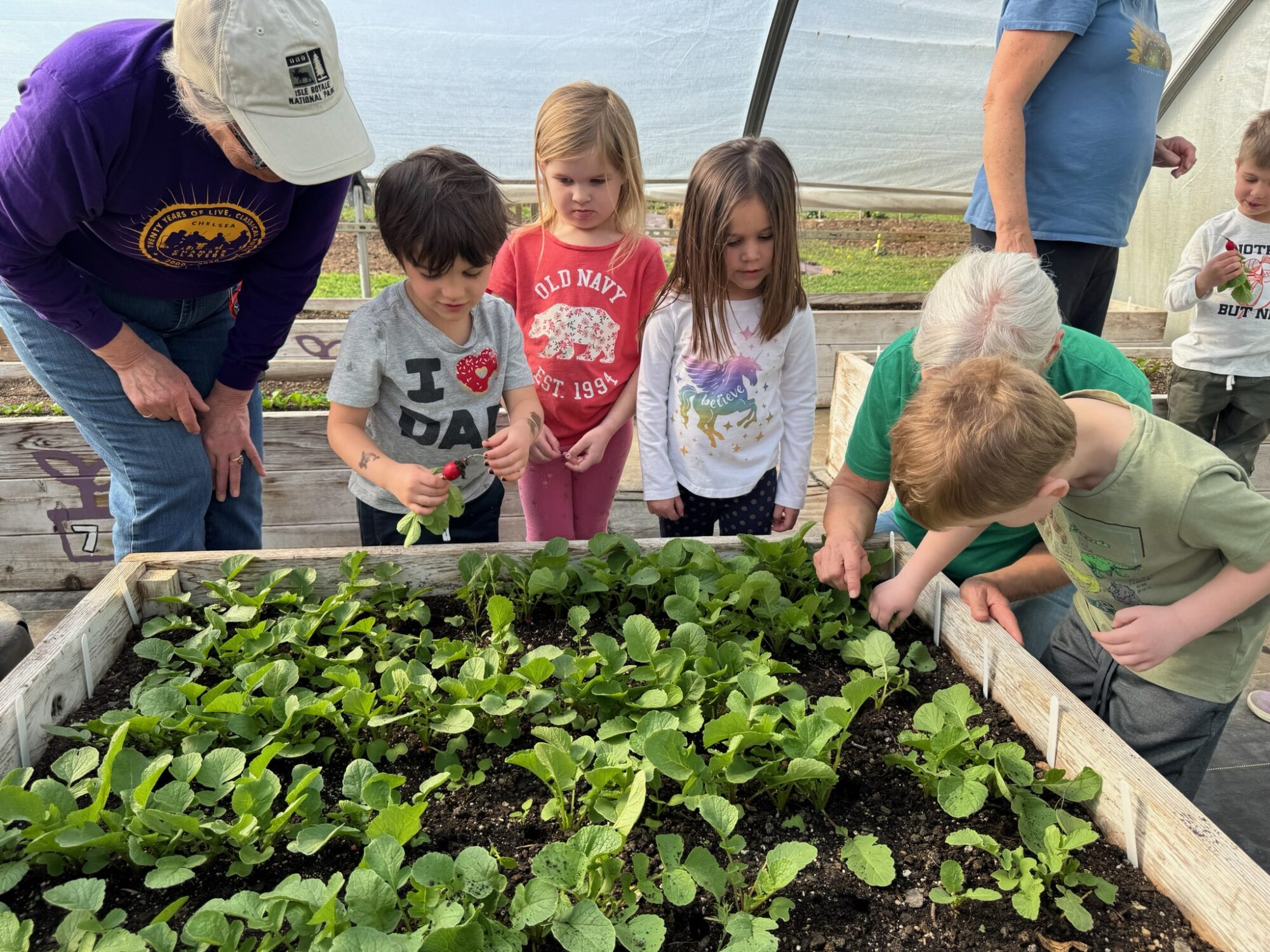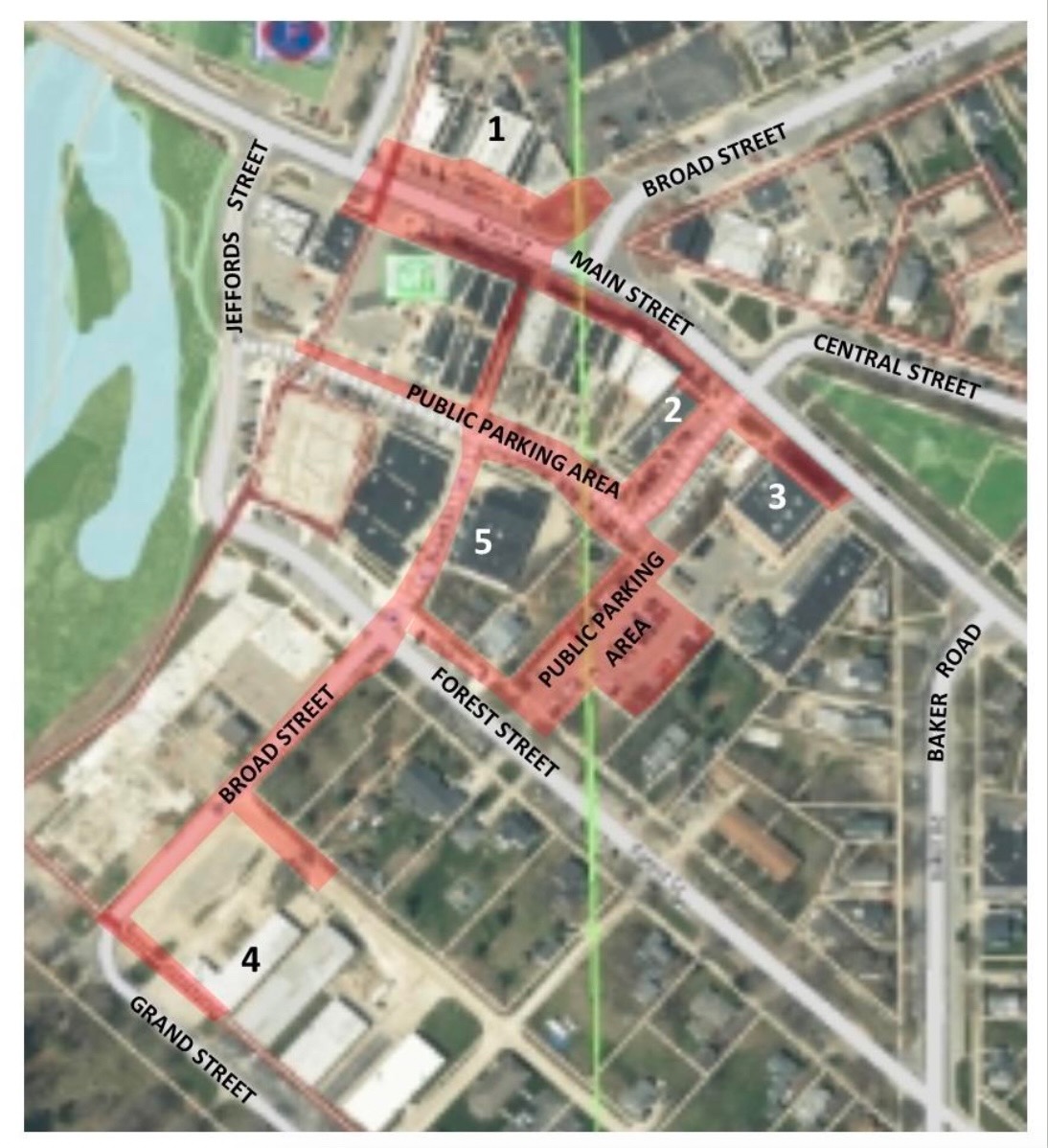Photo: Friends In Deed Executive Director Tania James. Photo by Doug Marrin.
Sun Times News Owner/Publisher Chuck Colby invited “Friends In Deed” to be the featured nonprofit organization at the newspaper’s recent “Up With the Sun” monthly breakfast on July 26th.
Friends in Deed has been at the forefront of combating poverty in Washtenaw County for over four decades. Based in Ypsilanti Township, this nonprofit organization has evolved to meet the changing face of poverty in Washtenaw County, which is often perceived as a wealthy area.
Executive Director Tania James introduced the organization’s mission and key programs. “Our mission is helping people in need and building community to end poverty,” James stated. “That’s what we do. We are focused on ending poverty.”
Founded in 1983, Friends in Deed offers several core services, including transportation assistance, direct financial aid, and furniture donations. The organization prides itself on its flexibility in addressing community needs.
“What’s really unique about Friends in Deed is that there are other programs that have stricter requirements. We can fill those gaps that others say they can’t access,” James explained.
However, the challenges facing Washtenaw County are growing increasingly complex, as Joye Clute, Director of Service Programs for Friends in Deed, points out. “This is not your grandma’s poverty,” Clute states. “The system is different. With every emergency system, there’s a catch-22 in it.”
One of the most alarming statistics Clute shares is that nearly 60% of Washtenaw County’s population falls into the ALICE category (Asset Limited, Income Constrained, Employed), formerly known as the “working poor.” This group struggles to meet basic needs despite being employed.
Housing costs in the county are particularly burdensome. “The fair market rate rent for a one-bedroom is roughly $1,000, and for a two-bedroom, it’s roughly $1,200,” Clute notes. These prices are out of reach for many residents, especially those earning minimum wage.
“In order for a minimum wage worker to afford just a one-bedroom in the state of Michigan, you would have to work 72 hours a week,” Clute explains, highlighting the disconnect between wages and housing costs.
The situation is further complicated by what Clute calls the “cliff effect,” where small pay raises can result in a disproportionate loss of government assistance. This creates a system that, as Clute puts it, “puts you at a disadvantage and makes you reliant on it.”
Clute also points out the lack of tenant protections and the civil nature of housing disputes in Michigan, often leaving vulnerable residents without recourse. “There is no protection for the tenant if they do fall into any difficulties with their rent, their late fees, or even predatory entities,” she says.
The crisis is reaching unprecedented levels, according to Clute. “We are entering into a very unprecedented time where I have case managers who have 40 years of experience in Washtenaw County, and they’ve never seen anything like this before,” she states.
As the community faces increasing economic challenges, Friends in Deed continues to adapt. “As you all know, with rent prices increasing and inflation, people can’t afford their basic needs,” James noted, highlighting the growing demand for their services.
Friends in Deed collaborates closely with other community organizations, providing case management and coordinating services. The organization relies heavily on volunteers and support from faith-based groups and individual donors.
Clute emphasizes the need for systemic changes and increased government intervention to address these issues, calling for a community-wide effort to pressure state representatives for meaningful action. She argues that the poverty crisis extends beyond Washtenaw County and requires federal attention.
With a dedicated staff and a solid volunteer base, Friends in Deed remains committed to its mission of ending poverty in Washtenaw County. However, as both James and Clute make clear, the challenges are mounting, and the organization’s work is more critical than ever.
As the community grapples with these complex issues, Friends in Deed continues to provide essential services and advocate for systemic changes, striving to build a community where poverty is no longer a barrier to a dignified life.
For more information visit https://www.friendsindeedmi.org/






 8123 Main St Suite 200 Dexter, MI 48130
8123 Main St Suite 200 Dexter, MI 48130


